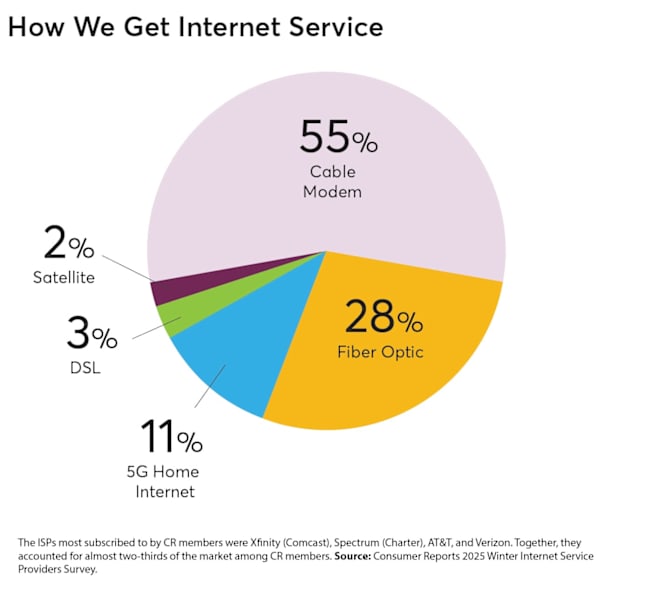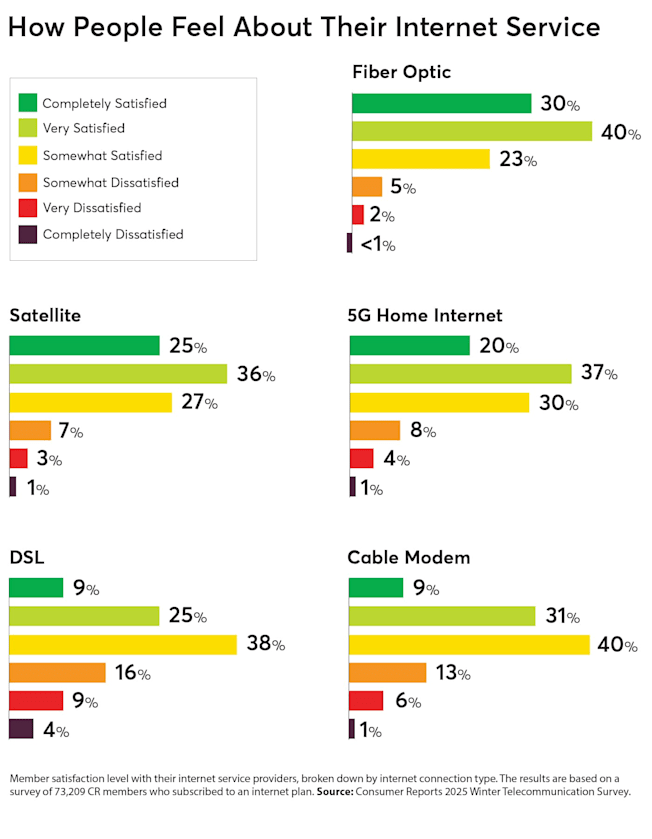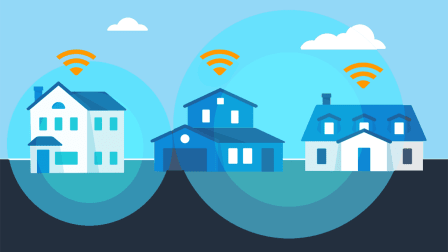Best and Worst Home Internet Providers
CR members knock many of the biggest internet service providers, such as Cox, Optimum, Spectrum, and Xfinity. But some smaller ISPs earn top scores in our survey.

When Consumer Reports asked its members for feedback on their internet plans, a handful of internet service providers (ISPs) received stellar ratings, earning CR recommendations. But that was rare.
An overwhelming majority of the 54 companies in our ratings received middling or worse marks in the 2025 survey, which collected responses from more than 73,000 CR members. Low scorers included some of the country’s biggest ISPs, such as Cox, Spectrum, and Xfinity.
Among the findings: Just 13 percent of respondents said they received top-notch value from their ISP. And only 17 percent rated customer service or technical support as excellent.
That’s similar to what we’ve heard in previous surveys.
We also found that prices have gone up for CR members. The median price of broadband service was $89 a month, up $4 from the data we collected in 2024.
But here’s a bright spot: Just over 60 percent of the respondents said their internet speed was very good or excellent. Median broadband speeds increased from 304 megabits per second in our 2024 survey to 364 Mbps this year. (That’s more than twice the 173 Mbps speed CR members reported back in 2022.)
People Give Top Marks to Fiber Connections
More than half (55 percent) of CR members get their internet service from a cable company, while just over a quarter (28 percent) have a fiber-optic connection. Just 11 percent have 5G home internet service, and even fewer people rely on DSL or satellite internet service.

Fiber isn’t the most common internet technology, but it has the happiest customers. In our survey, 70 percent of respondents with fiber service said they were very or completely satisfied.
And, in fact, all seven ISPs that earned the highest Overall Satisfaction Scores in our ratings offer fiber service. These ISPs include EPB (Electric Power Board of Chattanooga), Greenlight Networks, Ting, Google Fiber, i3 Broadband, GoNetSpeed, and Sonic. You can see more details on these CR Recommended internet providers below.

Bundles Remain Popular
Despite the growing number of people cutting ties with their traditional TV services, plans that combine internet with TV and/or phone service continue to be popular. Just over 60 percent of CR members said they receive internet as part of a bundle.
Television was the most popular service bundled with internet, with 44 percent of our members choosing it. About one-third of those who received a bundle have landline phone service, while 14 percent have cell phone service.
Top-Rated Internet Service Providers
The following seven companies earned top marks and CR recommendations. The current ratings are based on a 2025 survey of more than 73,000 CR members.




